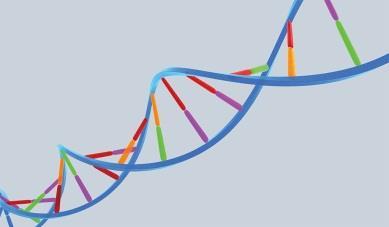Gradual change that embraces new technology but retains effective methods is preferable to disruptive change and the risks that it entails, says Clare Gerada

The health secretary’s announcement to set up a new body, Genomics England, which will be responsible for using DNA data to improve diagnosis and personalised care, called to mind a lecture I attended earlier this year by John McKinlay, a US based medical sociologist who runs a private think tank.
‘Technology has huge potential for improving communication between health professionals, patients and the public’
McKinlay talked about the need for a “revolution” in healthcare; one that will only be achieved through the widespread adoption of genomics and technology. But he said there is a strong resistance to this revolution from reactionary professionals with a vested interest in maintaining a health system that is no longer fit for purpose.
He compared doctors to the priests of the Middle Ages who attempted, in vain, to hold on to their power by resisting the tide of change sparked by the invention of the printing press.
McKinlay said if our health service is to be sustainable in the future, what’s needed is “disruptive innovation”, of the kind that has already occurred in commerce, banking, retail and manufacturing. He argued in favour of this revolution because healthcare across the world is in crisis: too expensive, too reactive, too inefficient and largely focused on “one size fits all” treatments.
A ready solution?
Disruptive innovation, according to its advocates, promises to resolve our healthcare crises by simultaneously increasing the ability to be personalised, predictive, preventive and participatory.
McKinlay paints a picture of a future in which diagnosis and treatment, and even surgery, will all be done by computer − a future in which technology will enable patients to wrest control of their healthcare from doctors.
We are already in the midst of a seismic shift that promises to give us an insight into our deepest personal identity, by revealing the secrets locked inside our genes − a revolution that will empower us to take back control of our health. New technology will allow us to predict illness and disease before they even manifest themselves.
‘A radical evolutionary approach accepts the thesis that the future may well be fundamentally different to the present’
Instead of being patients who have episodic contact with our doctors, we will all be “consumers”, in constant contact with the health system. Companies are already using smartphone technology to gather personal data about us that can monitor and intervene in our health, and we will communicate with a remote team armed with up to date technology that is available 24/7.
A lot of what John McKinlay talks about sounds pretty exciting. I believe technology has huge potential for improving communication between health professionals, patients and the public. I have been using email consultations for nearly 15 years and my practice, like many in the UK, is paperless. We are currently piloting remote electronic prescribing.
So, why am I − as a doctor and the leader of almost 47,000 GPs across the UK − wary of this radical, revolutionary transformation and why do I want to resist this vision of the future? Why am I afraid that disruptive innovation is going to do more harm than good?
Radical evolution
When it comes to change, I would not describe myself as a revolutionary but as a “radical evolutionist”. I believe a stark choice between revolution and evolution is a false dichotomy.
Radical evolutionists reject the tool of disruptive innovation because it is unnecessarily risky, destabilising and destructive. Evolution is a more gradual process of change; one that proceeds through adaptation to conditions, building on strengths and developing in response to changing circumstances, as needs arise.
‘In an age of testing for everything, people will have to make choices about what to do about their future health with little or incomplete information’
Radical evolution combines the best aspects of both approaches: it embraces new technology while preserving the best of current practice. A radical evolutionary approach accepts the thesis that the future may well be fundamentally different to the present.
No doubt McKinlay and his fellow revolutionaries would view this approach as rather conservative and lacking in vision. They would dismiss it as taking the safer option. But, although the technology in healthcare may be revolutionary, the people it will apply to are not.
In an age of testing for everything, people will have to make choices about what to do about their future health with little or incomplete information. The burden of having information and not understanding how to interpret it or, worse still, understanding the information but not knowing how to use it will create great challenges for our population.
Best of both worlds
Doctors do more than process data; we still use all our senses to help the patient in front of us. Far from clinicians becoming redundant in this brave new world, we are going to need specialist generalists more than ever if we are to harness its potential.
Expert professionals including GPs will be there to help patients work out what to do with information, what to prioritise, what to ignore and where to go for further help and support.
Technology is powerful and amazing − but we must never forget that medicine is an art, as well as a science. The technological revolution in medicine is here but, without the interpretative wisdom and humanity of doctors, it will not fulfil its potential. Most worryingly, it could jeopardise the doctor-patient relationship − the very basis of caring enshrined in the Hippocratic oath.
If, as doctors and as leaders, we become radical evolutionists, we can achieve the best of both worlds for our patients.
Dr Clare Gerada is chair of the Royal College of GPs


























12 Readers' comments